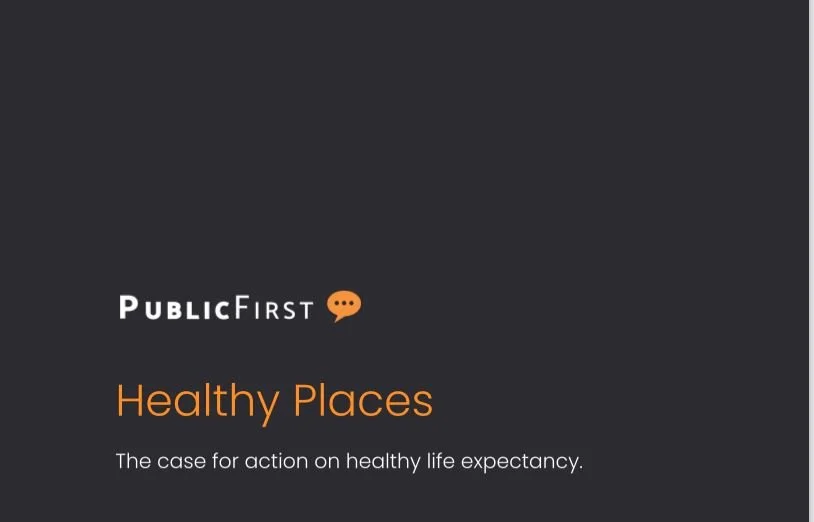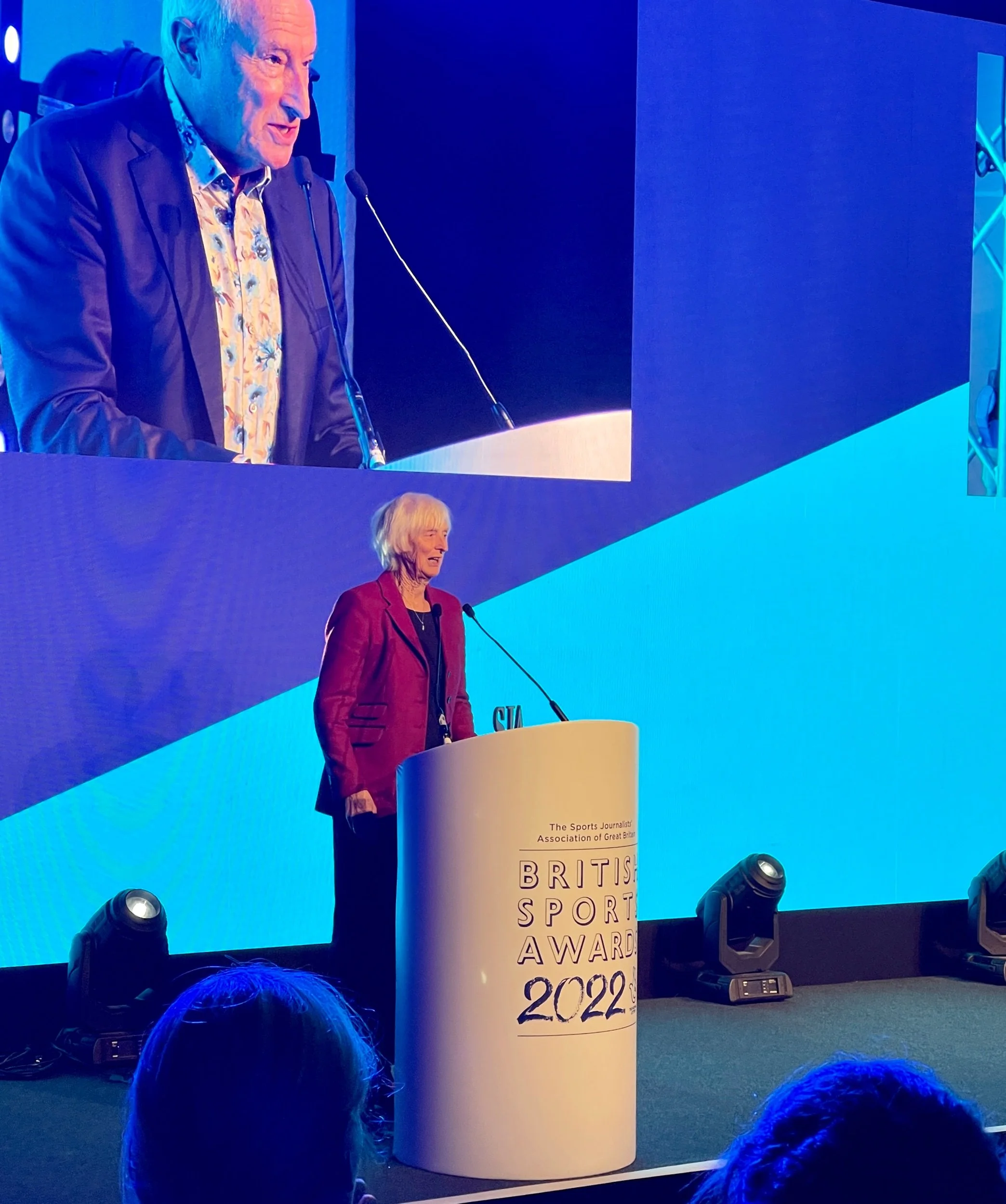I have written numerous times about one of my favourite books - The Freedom of Simplicity by Richard Foster. Whilst its a faith based book the lessons can be translated into a secular context.
At times in my life I have become aware that I have worried about what others may think of me, when straying from the lesson of this book. You need to be the true version of yourself and not try to impress others with a false image of yourself.
I am currently in the transition phase of ‘retirement’ as many of you know! I am taking longer breaks away from my volunteering, taking less paid gigs and disappearing from social media for longer periods. I don’t feel the need to post every day to capture attention!
I am pretty sure most people heading to the Polls next week for local elections are not really thinking much about the structure of our authorities and the devolution debate. In fact we know about 60% of people probably wont even be bothered to vote in many wards.
The devolution debate is hardly a policy area to generate much excitement beyond the policy makers, and local authority officials and elected members? I am not so sure anymore. I see much more interest in communities and business about what greater local powers could mean to empower local communities.
Niksen “literally means to do nothing, to be idle or doing something without any use,”
After another break idling my time away in Tuscany avoiding emails and 'work' I think for some time I managed to reach a state of 'Niksen'. But it takes effort!
Too often in the past I have said "Yes I am away but you can email me and I will deal with it" As a public servant I did feel I needed to be available 24/7 and probably quite rightly so - up to a point!
We have to learn why the same countries head up the world happiness league consistently!
It is not by accident. They pursue policies of wellbeing and tied to greater equality and equity. In one sense it isn’t rocket science.
I have been reading and writing a lot about wellbeing recently. It is not new to me but I seem to have a deeper understanding and relationship with the topic. When I left Parliament I wanted to pursue x major issues: International development, Sport and physical Activity Policy, Economic development AND Wellbeing policies.
As I spend more time working on these I realise now that Wellbeing is the extra topic I want to pursue but the golden thread that runs through the others.
In much of my work there is quite rightly a big emphasis on tackling inequalities and working towards equity across a wide range of recognised characteristics as recognised by the 201 Equalities Act.
However, as research continues to show social class remains one of the most important determinants of life chance, Of course there is always a wide range of intersectionality with the issue if equity but I always feel it necessary to make sure this is not lost when debating inequalities across society.
As this Report highlights - Social Class is still the biggest barrier!
As usual I don’t really bring much that is original to the debate around Wellbeing. There are experts, books, institutions and impressive individuals doing a much more impressive job. All I can do is amplify the message into the areas I work in politics, sport, physical activity and economic regeneration. In each the ‘wellbeing’ debate are vital but sadly largely overlooked.
This Talk ahead of the launch of the latest book from Richard Layard is well worth a listen, as it addresses the wider issues and provides the hard data to show why we should all take this seriously as a policy area!
As part of my continued obsession with tackling inequalities and poverty this is another timely report about the role of ‘Place’ in that vicious circle.
Health inequalities are entrenched in this country and life expectancy has been getting worse in the poorest areas. This was brutally exposed during the covid pandemic when people under 65 in the poorest parts of the country were four times more likely to die. Now, as we face the cost of living crisis and the NHS faces increased pressures, we risk things becoming worse still. This report focuses on healthy life expectancy (HLE) - the age which people can expect to reach in good health. This research was designed to support the stated ambition of the government: “By 2030, the gap in healthy life expectancy (HLE) between local areas where it is highest and lowest will have narrowed, and by 2035 HLE will rise by 5 years.”
It may be rather tedious to spend time considering ‘how’ to deliver policy rather than working on the new ideas for many people involved in politics. After all those energised enough to get involved in politics are usually impatient to change the world to match their ideological perspective. In recent years it has become even more pronounced that chasing headlines have become more important than delivery. But this can only get you so far!
When we talk about investing in Green Technology and a sustainable economy we underestimate how significant the UK's Green Skills Gap really is.
Many of our local leaders have recognised this but it needs a national strategy and funding if we are to reach our dual goals of Net Zero and an inclusive and sustainable economy.
This New Economics Foundation report couldn't be more timely as we wrestle with this issue. LLEP
The Impact of Local Government Funding Cuts on Public Services
Local government is responsible for delivering a range of vital public services, such as social care, housing, education, transport, waste management and libraries. However, these services have been severely affected by funding cuts from central government over the past decade.
Like millions I am excited by what AI can mean for society, but still remain wary so I have given it a go.
Below is the text of a blog I asked it to write on Devolution deals. Not exactly what I wanted but it took me 5 seconds to ask and about 10 seconds to produce!
What do you think?
A phrase that grates on me regularly is ‘sport X is at the heart of our local community’
I particularly hear it about sports clubs, gyms, leisure centres etc in my work. As you know I love sport and I do believe for some people it is a vital and important part of their lives. But so are many other community activities. The majority of the population do not belong to a sports club or go to watch sport.
What we mean about wellbeing and leaving the world better than you find it.... this TED talk sums up what we mean better than any blog
There is a theme shining through this blog series - Wellbeing and happiness policy making
I often admit that happiness sounds too ‘wishy washy’ for some serious policy makers - David Cameron suffered the usual jokes when he talked about the happiness index.
But as this blog from our friends at the State of Life shows, it is not just a few people talking about this in the abstract. It is a real tangible HMT Treasury Green Book Thing!
A new gold standard for measurement and evaluation, plus praise for the new WELLBY measure — State of life
Sadly too many recent conversations with friends and colleagues have been focussed around an increasing level of uncertainty and the frustration that goes with this. Slow decision making and 'silence' have replaced the chaos of the last few years from central government.
We all know that "Change is the only constant" but it doesn't make it much better for organisations or individuals so uncertain about their future. I personally don't mind the challenge of change - in fact I welcome it. The world is far from perfect so most of the time I am campaigning and calling for change! I can't complain when it then becomes uncomfortable along the way.
In sport the #unitingthemovment strategy is a welcome change of direction. Unless there are some painful changes for traditional partners, tackling inequalities and injustice won't happen. So change is a good thing.
The Chancellor Jeremey Hunt caused a stir recently when he suggested that the Over 50s who had left the workforce since Brexit/the pandemic should get off the Gold Course and back to work!
As somebody who is over 50, out of work and not on the golf course I read this with interest. I was in fact looking after my physical and mental wellbeing at the time on a walking holiday in the Peak District at the time.
There are two competing policy areas of personal interest here for me mixed up this rather crass statement. Wellbeing and Economic
We use the word inspirational in sporting circles a little too often for my liking. I know I am guilty of this!
Yesterday Baroness Sue Campbell picked up another award for her contribution to sport at the SJA Awards ceremony. And I can’t think of anybody else I have worked with since I met her in a small office at Loughborough Univerity in the mid 90s as a hopeful parliamentary candidate, that has had such an influence on me and the entire sports sector as Sue.
Right from the start of my brief economic development career I have been passionate about genuine regional economic devolution. We remain one of the most centralised countries in the world. I think my second question at PMQs was urging the Prime Minister to speed up delivery of the Regional Assemblies! Sadly, that policy came to nothing. But in recent years Mayoral authorities have captured the imagination.
If you look at many successful similar economies, the regional disparities are less obvious because of genuine regional economic power and devolved government.
Over the coming months and years however, devolution and levelling up will be a large part of our national and local conversation. Of course, there are geographies, personalities and politics involved so the skill is to work through this together to find a common solution.
We are going to hear a lot about ‘Growth’ over the next year.
Hers is an excellent short explainer/ Blog from Chatham House. It is a Think Tank so I assume they are now classed as one fo the enemies of growth for trying to think more widely about what is is and how you go aobut measuring it and designing policies to make it work for everyone!
Why it is time to change the narrative around growth | Chatham House – International Affairs Think Tank





















